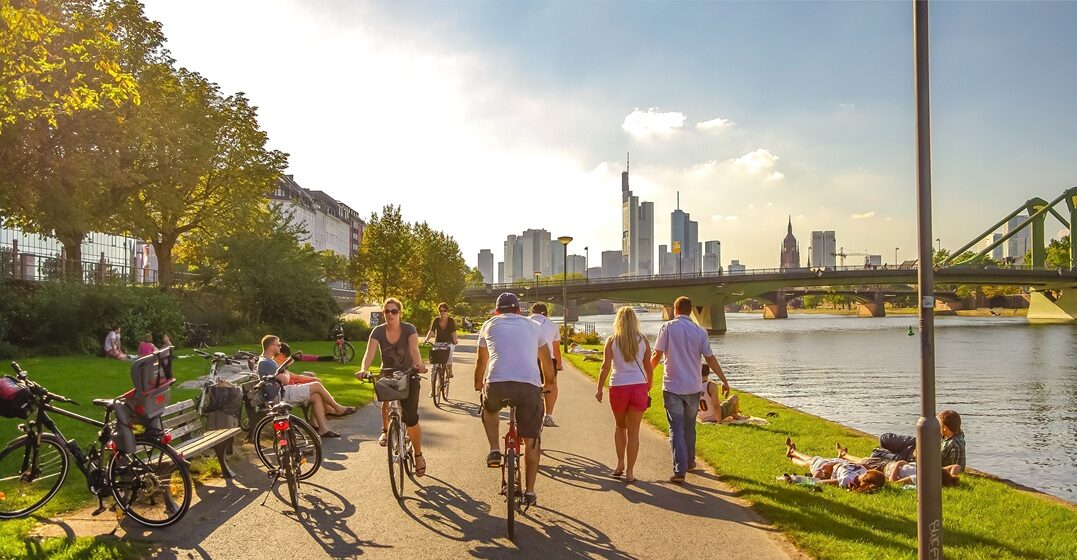10 cultural mistakes expats make in their first month in Germany

Ever asked a German local about the quirks of daily life? Chances are, they’ll say there’s nothing unusual at all. But what feels perfectly normal to a German can be completely bewildering to someone from abroad.
For expats who have recently landed in Germany, these differences often add up to a general sense of culture shock. The good news? Many have already attempted the move to Germany and made mistakes that you can learn from. By taking their stories to heart, you can ensure a smoother experience for yourself.
In this article, we’ll help you prepare for new situations and cultural surprises. We’ll also discuss some measures you can take to get a headstart on your life in Germany.
- Everyday habits that can make life in Germany more challenging
- Adapting to a new professional culture
- Habits that quietly hold back your integration
- Social norms that are easy to miss (but matter)
Everyday habits that can make life in Germany more challenging
Moving to Germany comes with its fair share of challenges — from looking for a flat to finding new friends and a job. But there are ways to make it all a little easier. And just as important as what you should do is what you shouldn’t.
1. Assuming English will be enough
It really depends on where you move to in Germany. In big cities like Berlin, many offices operate in English and the barista at the nearby coffee shop will probably switch to English if you struggle to say, “Ich hätte gerne einen Kaffee” (“I’d like a coffee”).
But don’t be fooled. Getting by in English is not the same as fully integrating. German is still the language of everyday life in cities like Frankfurt and Berlin, and it’s easy to feel isolated if you can’t connect to others properly. As André Klein, author of the Learn German with Stories series, puts it, “Language isn’t just a tool for communication — it’s a key to understanding how people think, live and connect.”
That doesn’t mean you need to become fluent in your first weeks or months, though. Take it easy, start with key phrases and use every opportunity you get to practice your German skills. You’ll see it pays off with time.
2. Delaying your Anmeldung appointment
This is a big one among expats: the Anmeldung. This residency registration is your golden ticket to life in Germany. It unlocks access to essential services like health insurance, bank accounts, mobile plans and basically everything else you need in everyday life.
As there can be long waiting lists in some regions in Germany, it’s best to book your Anmeldung appointment online before you arrive — weeks in advance, if possible.
3. Missing the subtle rules of public spaces
German public spaces adhere to subtle — but strict — social codes. Here are the most important ones to look out for:
- Respect the quiet hours: No noise is allowed in public areas between certain times of the day. Depending on your region, quiet hours can start at 10 p.m. and last until 7 a.m.
- Don’t walk inside bike lanes. You’ll likely be called out for it — and rightfully so, as it’s also dangerous. These lanes often run alongside sidewalks but are clearly marked and strictly respected.
- When using the escalators, always stand on the right side so people walking up can pass you on the left.
- Sorting trash is a civic duty in Germany. Not following the correct sorting procedures for your region could make you an unpopular neighbor.
The best strategy? Watch and learn. Subtle cultural cues are everywhere — just follow the locals' lead.

Adapting to a new professional culture
Starting a new job is always exciting and a little stressful. Doing it in another country is even more so. Germany’s professional culture has some (often unspoken) rules that you should try to learn and follow.
Here are some common mistakes and experiences expats face in their first days in the office.
4. Jumping into informality too quickly at work
There are two ways to address someone in German. You can either use du for informal situations or Sie for formal ones.
Especially in business culture, always default to Sie and use your colleagues’ last names until they “offer” the du. Once you’re on more familiar terms, you may get the go-ahead to switch to first names.
5. Learning the value of directness in German conversations
Depending on the cultural norms you’re used to, German speakers can seem quite harsh in their communications. But this is by design, as directness is highly valued in German culture and often prioritized over the more verbose forms of politeness.
It’s important to remember that directness does not always equal rudeness. Feedback is meant to be clear, honest and actionable — certainly not personal. If something feels off, it’s best to ask questions honestly. You may even be appreciated for showing initiative.
6. Overworking in a culture that values balance
Working late hours won’t prove your dedication or willingness to work hard. On the contrary, it might suggest poor time management.
As an employee, try to focus on the quality of your work (which doesn’t give you license to miss deadlines). Time off is also highly respected in Germany because it gives employees necessary time to recharge.
Habits that quietly hold back your integration
While it’s hard to tell exactly when someone is “fully integrated,” it’s painfully easy to tell when they’re not. In the beginning, the following habits are most likely the culprits.
7. Skipping out on language or integration courses
You might have nailed the basics within your first month — found a flat, landed a job — but still feel like an outsider. This is why a support system is important. A language or integration course offers more than just classroom time. It helps you feel more confident and connected with the place you’re living in.
If you’re looking for affordable or free options, check out the offers at the Bundesamt für Migration und Flüchtlinge (BAMF; the federal office for migration and refugees) or the local Volkshochschule (adult education center).
8. Expecting services to work like they do at home
Maybe fast digital processes and personalized customer service were the norm in your country of origin. If that’s the case, adjusting to strict opening hours, limited flexibility and bureaucratic paperwork can be challenging.
But these are some of the hurdles you’ll face when attempting to access important services like health insurance or work permits. Although the adjustment can be frustrating at first, try to accept the local norms. It will make it easier for you to adapt to the German system.
Social norms that are easy to miss (but matter)
A quick internet search will reveal that there are many expats in Germany who struggle with making connections. Germans have earned a reputation for being inaccessible and cold. But is this really true?
In reality, social connections in Germany just happen a little differently. Here are a couple of early mistakes to avoid on your way to making friends.
9. Expecting friendly chit-chat right away
In Germany, directness isn’t just for the boardroom — it extends to social life, too. Being overly chatty can be seen as needy, which is why a lot of people might seem reserved to you at first. But that doesn’t mean they’re unfriendly.
German friendships are slow to build but incredibly solid once they’re established. Give it time, because the following quote rings true: “German friendships are like oak trees — slow to grow, but strong and lasting once rooted.” (Adam Fletcher, author of How to Be German).
10. Overlooking how important punctuality really is
Being ten minutes late for a work call is unacceptable. In a society where punctuality is the Holy Grail, people will think you’re not valuing their time if you don’t make an effort to be punctual.
Aim to arrive five minutes early. It’s a small habit that speaks volumes about your reliability.
Start with understanding, end with belonging
Your first month in Germany will probably feel like a cultural crash course — and that’s perfectly fine. Even well-prepared professionals can make missteps. Try to be patient with yourself, and remember you don’t need to know it all in the beginning.
Join local communities. Sign up for a language course. Get involved in neighborhood events. Every small step will help you feel more at home and turn new surroundings into familiar ground.













